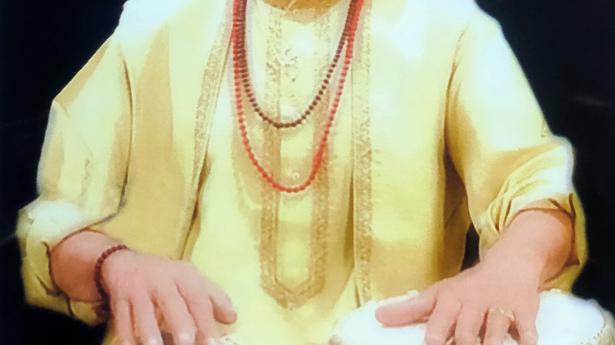
Tribute to Ustad Lachchman Singh Seen — a pillar of Punjab gharana
The Hindu
The tabla and sitar exponent was the master of rhythm and melody
When Ustad Lachchman Singh Seen, a Himachali Rajput, passed away recently, he was identified more with Punjab and the tabla, since he was the last celebrated disciple of Punjab gharana doyen, Ustad Mian Qadir Baksh. Lachchman Singh received extensive training in Lahore, before returning to his home in Jammu after Partition. Shortly after, Jalandhar became his home. Though he was primarily known as an exponent of the tabla, Lachchman Singh had also trained in sitar, in Jammu, and remained deeply connected with the instrument, teaching at the famous Hans Raj Mahila Maha Vidyalaya in Jalandhar .
Punjab was a centre of music in those days. Says Purnima Beri, who has been organising the 146-year-old Harivallabh Sangeet Sammelan , “I remember hearing from my father Balbir Singh Mehta, (who was closely associated with music, and both the premier festivals in Punjab, Harivallabh as well as the 107-year-old Lakshminarayan Sabha in Amritsar) that if there was ever a ‘baithak’ anywhere, Lachchman Singh ji would always be invited. His stature in the music world here was unparalleled.”
The story behind his honorific title ‘Ustad’ is an unusual one. According to his son Manu, Mian Qadir Baksh (Lachchman’s guru) began to address him as ‘Ustad’ after a much-acclaimed concert in Kolkata, (perhaps in the 1940s), where the audience hailed his knowledge, with shouts of ‘Jio Punjab’ (long live Punjab gharana).” A repository of rare compositions of the gharana, Ustad Lachchman Singh loved teaching. Says Pt. Sushil Jain, his seniormost disciple, who began learning from him in 1965, “He was working on a book listing 3,000 rare traditional compositions of his gharana, taught by his guru.”
According to renowned Punjab gharana representative and tabla artiste Pt. Yogesh Samsi, “As Lachchman Singh Seen was the last direct disciple of Mian Qadir Baksh, his passing is a big loss. For me, he was the last link with my guru’s (Ustad Allah Rakha) generation. Every time I went to Punjab, I would try to meet him. The first time was in 1993, at his home. He invited me after hearing my solo, and blessed me. Unhone apni taalim bahut bekhubi se qayam rakhi (he nurtured and preserved well his musical lineage). An era has come to an end, and our gharana has lost its pillar , and the responsibility is now on our generation to keep the sanskaar and taalim alive.
All of the Ustad’s six children are associated with music — son Kinnar is a musician based in the U.S., son Manu is a well known sitarist based in Jalandhar. Manu’s son Rishab too plays the sitar, while daughter Surpriya plays the santoor. Nephew Avirbhav Varma is one of the finest tabla players from the region. The musical legacy, which began in the hills of Himachal Pradesh lives on in Punjab.
The Delhi-based author writes on Hindustani musicians and music.













